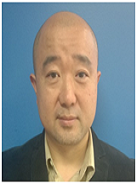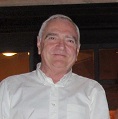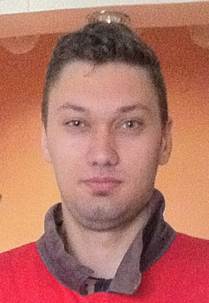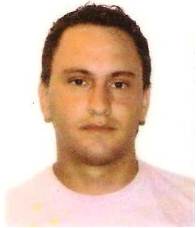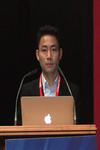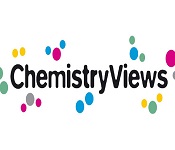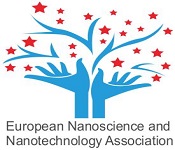Sessions and Tracks
Track 1: Organic Chemistry: Organic chemistry is the investigation of the structure, properties, arrangement, responses, and readiness of carbon-containing compounds, which incorporate hydrocarbons as well as compounds with any number of different components, including hydrogen (most compounds contain in any event one carbon–hydrogen security), nitrogen, oxygen, incandescent light, phosphorus, silicon, and sulfur. This branch of chemistry was initially restricted to compounds delivered by living life forms however has been widened to incorporate human-made substances, for example, plastics. The scope of utilization of organic compound is enormous and furthermore incorporates, however isn't restricted to, pharmaceuticals, petrochemicals, nourishment, explosives, paints, and beauty care products.
Societies and associations:
Europe:
Belgian Society of Biochemistry | Molecular Biology | Biochemical Society | Chemical Society | Danish Chemical Society | Society of German Chemists | Hungarian Chemical Society | Italian Chemical Society | Norwegian Chemical Society | Polish Chemical Society | Royal Netherlands Chemical Society
USA:
American Chemical Society | American Oil Chemists Society | American Society of Brewing Chemists | American Society for Mass Spectrometry | Canadian Society for Chemical Technology | Canadian Society of Clinical Chemists | Chemical Society of Peru | The Electrochemical Society American Chemical Society
Asia:
Chemical Society of Japan | Chinese-American Chemical Society | Chinese Chemical Society | Chemical Research Society of India | Indian Chemical Society | The Korean Chemical Society | Korean Chemical Society Chemical Society of Japan
Track 2: Analytical Chemistry: Analytical chemistry is the study of instruments and strategies used to independent, recognize, and evaluate matter. Practically speaking, partition, ID or measurement may constitute the whole examination or be joined with another technique. Partition disconnects analytes.
Societies and associations:
Europe:
Royal Society of Chemistry | Chemical Society of France | Society of Chemical Industry Danish Chemical Society | International Society of Electrochemistry | European Federation of Corrosion | Faraday Society | Czech Chemical Society | EuCheMS European Association for Chemical | Molecular Sciences | Royal Netherlands Chemical Society (KNCV)
USA:
American Crystallographic Association | The Electrochemical Society | American Chemical Society | Canadian Society for Chemistry | Canadian Society for Chemical Technology | American Association for Clinical Chemistry | American Institute of Chemists | Brazilian Chemical society | Mexican Chemical Society | International Association of Physical Chemist | Biochemical Society | American Institute of Chemical Engineers | Electrochemistry 2018 Conferences USA
Asia:
Chemical Society Located in Taipei | Chemical Society of Japan | Korean Chemical Society | Japan Society for Analytical Chemistry | Chemical Society of Vietnam | Serbian Chemical Society | Polymer Society of Korea | Chemical Research Society of India | Chemical Society of Nigeria | Chemical Society of Pakistan | Chinese Chemical Society
Track 3 : Geochemistry: Geochemistry is the branch of the geologic sciences that weds the geology and physics, so there is a geologic sub-discipline, geochemistry, in which chemistry and the geologic sciences come together. Geochemical analyses carried out on the natural samples such as volcanic gas, water, air, soil, sediment, dust, rock or biological hard tissues [especially ancient biological tissues] and also on anthropogenic materials, for example, modern profluent and sewage sludge. Geochemistry is investigation of the science of common earth materials and synthetic forms working with in and upon the Earth, both now and before.
Societies and associations:
Europe:
Norwegian Chemical Society | Polish Chemical Society | Royal Netherlands Chemical Society | Royal Society of Chemistry | Chemical Society of France | Society of Chemical Industry Danish Chemical Society | International Society of Electrochemistry | European Federation of Corrosion | Faraday Society | Czech Chemical Society | EuCheMS European Association for Chemical | Molecular Sciences
USA:
Canadian Society of Clinical Chemists | Chemical Society of Peru | The Electrochemical Society American Chemical Society | American Crystallographic Association | The Electrochemical Society | American Chemical Society | Canadian Society for Chemistry | Canadian Society for Chemical Technology | American Association for Clinical Chemistry | American Institute of Chemists
Asia:
Indian Chemical Society | The Korean Chemical Society | Korean Chemical Society Chemical Society of Japan | Chemical Society Located in Taipei | Chemical Society of Japan | Korean Chemical Society | Japan Society for Analytical Chemistry | Chemical Society of Vietnam | Serbian Chemical Society | Polymer Society of Korea | Chemical Research Society of India
Track 4: Supra molecular Chemistry: The area of science past that of particles that spotlights on the concoction frameworks made up of a discrete number of gathered atomic subunits or segments. The powers in charge of the spatial association may shift from feeble (intermolecular powers, electrostatic or hydrogen holding) to solid (covalent holding), gave that the level of electronic coupling between the atomic part stays little as for important vitality parameters of the segment. Supra molecular science analyzes the weaker and reversible non-covalent collaborations between particles.
Societies and associations:
Europe:
Chemical Society | Danish Chemical Society | Society of German Chemists | Hungarian Chemical Society | Italian Chemical Society | Norwegian Chemical Society | Polish Chemical Society | Czech Chemical Society | EuCheMS European Association for Chemical and Molecular Sciences | Royal Netherlands Chemical Society (KNCV) | Russian Chemometric Society | Swiss Chemical Society
USA:
Canadian Society for Chemical Technology | Canadian Society of Clinical Chemists | Chemical Society of Peru | The Electrochemical Society American Chemical Society | American Crystallographic Association | The Electrochemical Society | American Chemical Society | Canadian Society for Chemistry | Brazilian Chemical society | Mexican Chemical Society | International Association of Physical Chemist | Biochemical Society | American Institute of Chemical Engineers | Electrochemistry 2018 Conferences USA
Asia:
Korean Chemical Society | Japan Society for Analytical Chemistry | Chemical Society of Vietnam | Serbian Chemical Society | Polymer Society of Korea | Chemical Research Society of India | Chinese-American Chemical Society | Chinese Chemical Society | Chemical Research Society of India | Indian Chemical Society | The Korean Chemical Society | Korean Chemical Society Chemical Society of Japan
Track 5: Green Chemistry: A territory of science and concoction building concentrated on the planning of items and procedures that limit the utilization and age of unsafe substances. The bigger goals of green science explicitly, more resource powerful and distinctively increasingly secure arrangement of particles, materials, items, and techniques can be looked for after in a broad assortment of settings.
Societies and associations:
Europe:
Russian Chemometric Society | Swiss Chemical Society | Portuguese Chemical Society | Israel Chemical Society | Croatian Chemical Society | Society of German Chemists | Hungarian Chemical Society | Italian Chemical Society | Norwegian Chemical Society | Polish Chemical Society | Royal Netherlands Chemical Society | Royal Society of Chemistry | Chemical Society of France | Society of Chemical Industry Danish Chemical Society | International Society of Electrochemistry
USA:
American Chemical Society | Canadian Society for Chemistry | Canadian Society for Chemical Technology | American Association for Clinical Chemistry | American Institute of Chemists | Brazilian Chemical society | American Society for Mass Spectrometry | Canadian Society for Chemical Technology | Canadian Society of Clinical Chemists | Chemical Society of Peru
Asia:
Chemical Society Located in Taipei | Chemical Society of Japan | Korean Chemical Society | Japan Society for Analytical Chemistry | Chemical Society of Vietnam | Serbian Chemical Society | Polymer Society of Korea | Chemical Society of Japan | Chinese-American Chemical Society | Chinese Chemical Society | Chemical Research Society of India | Indian Chemical Society | The Korean Chemical Society
Societies and associations:
Europe:
Biochemical Society | Chemical Society | Danish Chemical Society | Society of German Chemists | Hungarian Chemical Society | Italian Chemical Society | Norwegian Chemical Society | Polish Chemical Society | Czech Chemical Society | EuCheMS European Association for Chemical | Molecular Sciences | Royal Netherlands Chemical Society (KNCV) | Russian Chemometric Society | Swiss Chemical Society
USA:
American Oil Chemists Society | American Society of Brewing Chemists | American Society for Mass Spectrometry | Canadian Society for Chemical Technology | Canadian Society of Clinical Chemists | American Chemical Society | Canadian Society for Chemistry | Canadian Society for Chemical Technology | American Association for Clinical Chemistry | American Institute of Chemists | Brazilian Chemical society
Asia:
Chinese-American Chemical Society | Chinese Chemical Society | Chemical Research Society of India | Indian Chemical Society | The Korean Chemical Society | Korean Chemical Society Chemical Society of Japan | Japan Society for Analytical Chemistry | Chemical Society of Vietnam | Serbian Chemical Society | Polymer Society of Korea | Chemical Research Society of India | Chemical Society of Nigeria | Chemical Society of Pakistan
Track 7 : Electrochemistry: It is the branch of physical science that audits the association between control, as a quantifiable and quantitative ponder, and identifiable substance change, with either control considered an aftereffect of a particular compound change or the a different way.
Societies and associations:
Europe:
Belgian Society of Biochemistry Molecular Biology | Biochemical Society | Chemical Society | Danish Chemical Society | Society of German Chemists | Hungarian Chemical Society | Italian Chemical Society | Norwegian Chemical Society | Royal Netherlands Chemical Society (KNCV) | Russian Chemometric Society | Swiss Chemical Society | Portuguese Chemical Society | Israel Chemical Society | Croatian Chemical Society
USA:
American Chemical Society | American Oil Chemists Society | American Society of Brewing Chemists | American Society for Mass Spectrometry | Canadian Society for Chemical Technology | Canadian Society of Clinical Chemists | Brazilian Chemical society | Mexican Chemical Society | International Association of Physical Chemist | Biochemical Society | American Institute of Chemical Engineers | Electrochemistry 2018 Conferences USA
Asia:
Chemical Society of Japan | Chinese-American Chemical Society | Chinese Chemical Society | Chemical Research Society of India | Indian Chemical Society | The Korean Chemical Society | Korean Chemical Society Chemical Society of Japan | Polymer Society of Korea | Chemical Research Society of India | Chemical Society of Nigeria | Chemical Society of Pakistan | Chinese Chemical Society
Track 8: Physical Chemistry: Physical science is the examination of noticeable, atomic, subatomic, and particulate wonders in compound systems to the extent the guidelines, practices, and thoughts of material science, for instance, development, imperativeness, propel, time, thermodynamics, quantum science, genuine mechanics, informative components and substance adjust.
Societies and associations:
Europe:
Swiss Chemical Society | Portuguese Chemical Society | Israel Chemical Society | Croatian Chemical Society | Belgian Society of Biochemistry Molecular Biology | Biochemical Society | Chemical Society | Danish Chemical Society | Society of German Chemists | Hungarian Chemical Society | Italian Chemical Society | Norwegian Chemical Society | Polish Chemical Society
USA:
Biochemical Society | American Institute of Chemical Engineers | Electrochemistry 2018 Conferences USA | American Chemical Society | American Oil Chemists Society | American Society of Brewing Chemists | American Society for Mass Spectrometry | Canadian Society for Chemical Technology | Canadian Society of Clinical Chemists
Asia:
Polymer Society of Korea | Chemical Research Society of India | Chemical Society of Nigeria | Chemical Society of Pakistan | Chinese Chemical Society | Chemical Society of Japan | Chinese-American Chemical Society | Chinese Chemical Society | Chemical Research Society of India | Indian Chemical Society | The Korean Chemical Society | Korean Chemical Society Chemical Society of Japan
Track 9: Coordination Chemistry: A coordination complex comprises of a focal iota or particle, which is normally metallic and is known as the coordination focus, and an encompassing exhibit of bound atoms or particles, that are thusly known as ligands or complexing specialists. Various metal-containing blends, especially those of progress metals, are coordination buildings. A coordination complex whose inside is a metal molecule is known as a metal complex.
Societies and associations:
Europe:
Biochemical Society | Chemical Society | Danish Chemical Society | Society of German Chemists | Hungarian Chemical Society | Italian Chemical Society | Norwegian Chemical Society | Polish Chemical Society | International Society of Electrochemistry | European Federation of Corrosion | Faraday Society | Czech Chemical Society | EuCheMS European Association for Chemical | Molecular Sciences | Royal Netherlands Chemical Society (KNCV)
USA:
American Oil Chemists Society | American Society of Brewing Chemists | American Society for Mass Spectrometry | Canadian Society for Chemical Technology | Canadian Society of Clinical Chemists | Canadian Society for Chemistry | Canadian Society for Chemical Technology | American Association for Clinical Chemistry | American Institute of Chemists | Brazilian Chemical society | Mexican Chemical Society
Asia:
Chinese-American Chemical Society | Chinese Chemical Society | Chemical Research Society of India | Indian Chemical Society | The Korean Chemical Society | Japan Society for Analytical Chemistry | Chemical Society of Vietnam | Serbian Chemical Society | Polymer Society of Korea | Chemical Research Society of India | Chemical Society of Nigeria | Chemical Society of Pakistan | Chinese Chemical Society
Track 10: Petro Chemistry: Petro -chemistry refers the branch of chemistry that focuses on how the crude oil and natural gas are converted in to a raw materials and other useful products. Today such resources are considered as the integral part of the development of the economy which evolves the petro- chemistry in the incredibly valuable field.
Societies and associations:
Europe:
Society of Chemical Industry Danish Chemical Society | International Society of Electrochemistry | European Federation of Corrosion | Faraday Society | Czech Chemical Society | EuCheMS European Association for Chemical | Molecular Sciences | Royal Netherlands Chemical Society (KNCV) | Russian Chemometric Society | Swiss Chemical Society
USA:
American Crystallographic Association | The Electrochemical Society | American Chemical Society | Canadian Society for Chemistry | Canadian Society for Chemical Technology | American Association for Clinical Chemistry | American Institute of Chemists | Brazilian Chemical society | Mexican Chemical Society | International Association of Physical Chemist | Biochemical Society
Asia:
Chemical Society Located in Taipei | Chemical Society of Japan | Korean Chemical Society | Japan Society for Analytical Chemistry | Chemical Society of Vietnam | Serbian Chemical Society | Polymer Society of Korea | Chemical Research Society of India | Chemical Society of Nigeria | Chemical Society of Pakistan | Chinese Chemical Society
Track 11: Forensic Chemistry: Measurable science is the use of science and its subfield, scientific toxicology, in a legitimate setting. A criminological scientist can aid the recognizable proof of obscure materials found at a wrongdoing scene. Specialists in this field have a wide cluster of techniques and instruments to help distinguish obscure substances. These incorporate elite fluid chromatography, gas chromatography-mass spectrometry, nuclear ingestion spectroscopy, Fourier change infrared spectroscopy, and thin layer chromatography.. Criminological scientific experts lean toward utilizing nondestructive strategies to begin with, to safeguard confirm and to figure out which ruinous techniques will create the best outcomes.
Societies and associations:
Europe:
Belgian Society of Biochemistry Molecular Biology | Biochemical Society | Chemical Society | Danish Chemical Society | Society of German Chemists | Hungarian Chemical Society | Italian Chemical Society | Norwegian Chemical Society | Polish Chemical Society | Royal Netherlands Chemical Society | Royal Society of Chemistry | Chemical Society of France | Society of Chemical Industry Danish Chemical Society
USA:
American Chemical Society | American Oil Chemists Society | American Society of Brewing Chemists | American Society for Mass Spectrometry | Canadian Society for Chemical Technology | Canadian Society of Clinical Chemists | Chemical Society of Peru | The Electrochemical Society American Chemical Society | American Crystallographic Association | The Electrochemical Society | American Chemical Society
Asia:
Chemical Society of Japan | Chinese-American Chemical Society | Chinese Chemical Society | Chemical Research Society of India | Indian Chemical Society | The Korean Chemical Society | Korean Chemical Society Chemical Society of Japan | Chemical Society Located in Taipei | Chemical Society of Japan | Korean Chemical Society | Japan Society for Analytical Chemistry
Track 12: Nanostructures: It is a structure of middle of the road measure amongst minute and sub-atomic structures. Nano structural detail is microstructure at nano scale. In depicting nanostructures, it is important to separate between the quantity of measurements in the volume of a protest which are on the nano scale.
Societies and associations:
Europe:
Belgian Society of Biochemistry | Molecular Biology | Biochemical Society | Chemical Society | Danish Chemical Society | Society of German Chemists | Hungarian Chemical Society | Italian Chemical Society | Norwegian Chemical Society | Polish Chemical Society | Royal Netherlands Chemical Society
USA:
American Chemical Society | American Oil Chemists Society | American Society of Brewing Chemists | American Society for Mass Spectrometry | Canadian Society for Chemical Technology | Canadian Society of Clinical Chemists | Chemical Society of Peru | The Electrochemical Society American Chemical Society
Asia:
Chemical Society of Japan | Chinese-American Chemical Society | Chinese Chemical Society | Chemical Research Society of India | Indian Chemical Society | The Korean Chemical Society | Chemical Society of Japan
Track 13: Radioactivity: Radioactivity alludes to the particles which are transmitted from cores because of atomic unsteadiness. Since the core encounters the extreme clash between the two most grounded powers in nature, it ought not astound that there are numerous atomic isotopes which are temperamental and produce some sort of radiation. The most well-known kinds of radiation are called alpha, beta, and gamma radiation, yet there are a few different assortments of radioactive rot.
Societies and associations:
Europe:
Royal Society of Chemistry | Chemical Society of France | Society of Chemical Industry Danish Chemical Society | International Society of Electrochemistry | European Federation of Corrosion | Faraday Society | Biochemical Society | Chemical Society | Danish Chemical Society | Society of German Chemists | Hungarian Chemical Society | Italian Chemical Society | Norwegian Chemical Society | Polish Chemical Society
USA:
The Electrochemical Society American Chemical Society | American Crystallographic Association | The Electrochemical Society | American Chemical Society | Canadian Society for Chemistry | Canadian Society for Chemical Technology | American Association for Clinical Chemistry | American Oil Chemists Society | American Society of Brewing Chemists | American Society for Mass Spectrometry | Canadian Society for Chemical Technology | Canadian Society of Clinical Chemists
Asia:
Chemical Society Located in Taipei | Chemical Society of Japan | Korean Chemical Society | Japan Society for Analytical Chemistry | Chemical Society of Vietnam | Serbian Chemical Society | Polymer Society of Korea | Chemical Society of Japan | Chinese-American Chemical Society | Chinese Chemical Society | Chemical Research Society of India | Indian Chemical Society | The Korean Chemical Society | Chemical Society of Japan
Track 14: Chemical Technology: Chemical Technology Studies incorporate natural and inorganic science, modern and physical science, connected organic chemistry, quantitative and instrumental investigation, and science particular to the oil and gas, farming, nourishment and ecological segments.
Societies and associations:
Europe:
Norwegian Chemical Society | Polish Chemical Society | Royal Netherlands Chemical Society | Royal Society of Chemistry | Chemical Society of France | Society of Chemical Industry Danish Chemical Society | Czech Chemical Society | EuCheMS European Association for Chemical | Molecular Sciences | Royal Netherlands Chemical Society (KNCV) | Russian Chemometric Society | Swiss Chemical Society
USA:
American Society for Mass Spectrometry | Canadian Society for Chemical Technology | Canadian Society of Clinical Chemists | Chemical Society of Peru | The Electrochemical Society American Chemical Society | Mexican Chemical Society | International Association of Physical Chemist | Biochemical Society | American Institute of Chemical Engineers
Asia:
Chinese Chemical Society | Chemical Research Society of India | Indian Chemical Society | The Korean Chemical Society | Korean Chemical Society Chemical Society of Japan | Polymer Society of Korea | Chemical Research Society of India | Chemical Society of Nigeria | Chemical Society of Pakistan | Chinese Chemical Society
Track 15: Nutrition and Food Chemistry: Nourishment science draws from numerous orders, for example, and science, synthetic designing, and natural chemistry trying to comprehend forms and eventually enhance nourishment items for the overall population. As the stewards of the field, sustenance researchers contemplate the physical, microbiological, and concoction cosmetics of nourishment. By applying their discoveries, they are in charge of building up the protected, nutritious sustenance and inventive bundling that line market retires all over the place. The sustenance you expend every day is the aftereffect of broad nourishment examine, an efficient examination concerning an assortment of nourishments' properties and creations.
Societies and associations:
Europe:
Belgian Society of Biochemistry | Molecular Biology | Biochemical Society | Chemical Society | Danish Chemical Society | Society of German Chemists | Hungarian Chemical Society | Italian Chemical Society | Norwegian Chemical Society | Polish Chemical Society | Royal Netherlands Chemical Society
USA:
American Chemical Society | American Oil Chemists Society | American Society of Brewing Chemists | American Society for Mass Spectrometry | Canadian Society for Chemical Technology | Canadian Society of Clinical Chemists | Chemical Society of Peru | The Electrochemical Society American Chemical Society
Asia:
Chemical Society of Japan | Chinese-American Chemical Society | Chinese Chemical Society | Chemical Research Society of India | Indian Chemical Society | The Korean Chemical Society | Chemical Society of Japan
Track 16: Fluorous Chemistry: Fluorous science joins the utilization of per fluorinated mixes or perfluorinated substituents to help recuperation of a main thrust or response thing. Perfluorinated groups permit novel physical properties uniting high dissolvability in perfluorinated solvents. This property can be gainful in like manner blend and bundle methods, for example, strong stage extraction .in every practical sense, a perfluorinated alkyl gather is joined into a generally ordinary trademark reagent as a love tag. These reagents would then have the ability to be isolated from trademark solvents by extraction with fluorinated solvents, for example, perfluorohexane.
Societies and associations:
Europe:
Royal Society of Chemistry | Chemical Society of France | Society of Chemical Industry Danish Chemical Society | International Society of Electrochemistry | European Federation of Corrosion | Faraday Society | Czech Chemical Society | EuCheMS European Association for Chemical | Molecular Sciences | Royal Netherlands Chemical Society (KNCV)
USA:
American Crystallographic Association | The Electrochemical Society | American Chemical Society | Canadian Society for Chemistry | Canadian Society for Chemical Technology | American Association for Clinical Chemistry | American Institute of Chemists | Brazilian Chemical society | Mexican Chemical Society | International Association of Physical Chemist | Biochemical Society | American Institute of Chemical Engineers | Electrochemistry 2018 Conferences USA
Asia:
Chemical Society Located in Taipei | Chemical Society of Japan | Korean Chemical Society | Japan Society for Analytical Chemistry | Chemical Society of Vietnam | Serbian Chemical Society | Polymer Society of Korea | Chemical Research Society of India | Chemical Society of Nigeria | Chemical Society of Pakistan | Chinese Chemical Society
Track 17: Organic Photochemistry: The examination of the substance effects of light. It is described as the compound reaction caused by osmosis of splendid. This field of science is of gigantic vitality as it is the beginning of photosynthesis, vision, and the game-plan of vitamin D with sunlight.
Societies and associations:
Europe:
Norwegian Chemical Society | Polish Chemical Society | Royal Netherlands Chemical Society | Royal Society of Chemistry | Chemical Society of France | Society of Chemical Industry Danish Chemical Society | International Society of Electrochemistry | European Federation of Corrosion | Faraday Society | Czech Chemical Society | EuCheMS European Association for Chemical | Molecular Sciences
USA:
Canadian Society of Clinical Chemists | Chemical Society of Peru | The Electrochemical Society American Chemical Society | American Crystallographic Association | The Electrochemical Society | American Chemical Society | Canadian Society for Chemistry | Canadian Society for Chemical Technology | American Association for Clinical Chemistry | American Institute of Chemists
Asia:
Indian Chemical Society | The Korean Chemical Society | Korean Chemical Society Chemical Society of Japan | Chemical Society Located in Taipei | Chemical Society of Japan | Korean Chemical Society | Japan Society for Analytical Chemistry | Chemical Society of Vietnam | Serbian Chemical Society | Polymer Society of Korea | Chemical Research Society of India
Track 18: Reaction Engineering: Mixture reaction building (reaction planning or reactor structuring) is a distinguishing strength in substance building or mechanical science overseeing compound reactors. As often as possible the term relates particularly to synergist response frameworks where either a homogeneous or heterogeneous impetus is available in the reactor. Once in a while a reactor essentially is absent independent from anyone else, yet rather is coordinated into a procedure, for instance in receptive detachments vessels, counters, certain power modules, and photo catalytic surfaces.
Societies and associations:
Europe:
Chemical Society | Danish Chemical Society | Society of German Chemists | Hungarian Chemical Society | Italian Chemical Society | Norwegian Chemical Society | Polish Chemical Society | Czech Chemical Society | EuCheMS European Association for Chemical | Molecular Sciences | Royal Netherlands Chemical Society (KNCV) | Russian Chemometric Society | Swiss Chemical Society
USA:
Canadian Society for Chemical Technology | Canadian Society of Clinical Chemists | Chemical Society of Peru | The Electrochemical Society American Chemical Society | American Crystallographic Association | The Electrochemical Society | American Chemical Society | Canadian Society for Chemistry | Brazilian Chemical society | Mexican Chemical Society | International Association of Physical Chemist | Biochemical Society | American Institute of Chemical Engineers | Electrochemistry 2018 Conferences USA
Asia:
Korean Chemical Society | Japan Society for Analytical Chemistry | Chemical Society of Vietnam | Serbian Chemical Society | Polymer Society of Korea | Chemical Research Society of India | Chinese-American Chemical Society | Chinese Chemical Society | Chemical Research Society of India | Indian Chemical Society | The Korean Chemical Society | Korean Chemical Society Chemical Society of Japan
Track 19: Heat Transfer: It is the procedure of exchange of heat from high temperature supply to low temperature repository. As far as the thermodynamic framework, warm exchange is the development of warmth over the limit of the framework because of temperature distinction between the framework and the environment.
Societies and associations:
Europe:
Russian Chemometric Society | Swiss Chemical Society | Portuguese Chemical Society | Israel Chemical Society | Croatian Chemical Society | Society of German Chemists | Hungarian Chemical Society | Italian Chemical Society | Norwegian Chemical Society | Polish Chemical Society | Royal Netherlands Chemical Society | Royal Society of Chemistry | Chemical Society of France | Society of Chemical Industry Danish Chemical Society | International Society of Electrochemistry
USA:
American Chemical Society | Canadian Society for Chemistry | Canadian Society for Chemical Technology | American Association for Clinical Chemistry | American Institute of Chemists | Brazilian Chemical society | American Society for Mass Spectrometry | Canadian Society for Chemical Technology | Canadian Society of Clinical Chemists | Chemical Society of Peru
Asia:
Chemical Society Located in Taipei | Chemical Society of Japan | Korean Chemical Society | Japan Society for Analytical Chemistry | Chemical Society of Vietnam | Serbian Chemical Society | Polymer Society of Korea | Chemical Society of Japan | Chinese-American Chemical Society | Chinese Chemical Society | Chemical Research Society of India | Indian Chemical Society | The Korean Chemical Society
Track 20: Organic Electronics And Regio-chemistry: Natural devices is a field that gives the examination of materials science related to the association, depiction, illustrating, and utilization of minimal regular particles or polymers that shows critical electronic properties, for instance, conductivity. It is delivered utilizing regular (carbon-based) little iotas or polymers using designed frameworks made with respect to common and polymer science. Regio-chemistry is described as the slant of creation bond showing the choosing minute one course to all other possible headings. It can frequently apply to which of various possible positions a reagent will impact, for instance, which proton a strong base will process from a characteristic particle, or where on a substituted benzene ring a further substituent will incorporate.
Societies and associations:
Europe:
Biochemical Society | Chemical Society | Danish Chemical Society | Society of German Chemists | Hungarian Chemical Society | Italian Chemical Society | Norwegian Chemical Society | Polish Chemical Society | Czech Chemical Society | EuCheMS European Association for Chemical | Molecular Sciences | Royal Netherlands Chemical Society (KNCV) | Russian Chemometric Society | Swiss Chemical Society
USA:
American Oil Chemists Society | American Society of Brewing Chemists | American Society for Mass Spectrometry | Canadian Society for Chemical Technology | Canadian Society of Clinical Chemists | American Chemical Society | Canadian Society for Chemistry | Canadian Society for Chemical Technology | American Association for Clinical Chemistry | American Institute of Chemists | Brazilian Chemical society
Asia:
Chinese-American Chemical Society | Chinese Chemical Society | Chemical Research Society of India | Indian Chemical Society | The Korean Chemical Society | Korean Chemical Society Chemical Society of Japan | Japan Society for Analytical Chemistry | Chemical Society of Vietnam | Serbian Chemical Society | Polymer Society of Korea | Chemical Research Society of India | Chemical Society of Nigeria | Chemical Society of Pakistan
Track 21: Global Chemical Industry Analysis: The worldwide concoction industry is expansive and focused. It is relied upon to develop at a significant rate later on. The business things speak to an important idea of the general overall synthetic compounds industry. The overall engineered industry includes a very varying and befuddled extent of things. As far as income, it is one of the world's biggest markets. Worldwide gathering on Organic and Inorganic Chemistry 2018 respects all the main ventures and prominent pioneers to go along with us and offer their thoughts for improving the market of concoction Industry and elements influencing the quality of rivalry in the worldwide chemicals showcase.
Societies and associations:
Europe:
Swiss Chemical Society | Portuguese Chemical Society | Israel Chemical Society | Croatian Chemical Society | Belgian Society of Biochemistry Molecular Biology | Biochemical Society | Chemical Society | Danish Chemical Society | Society of German Chemists | Hungarian Chemical Society | Italian Chemical Society | Norwegian Chemical Society | Polish Chemical Society
USA:
Biochemical Society | American Institute of Chemical Engineers | Electrochemistry 2018 Conferences USA | American Chemical Society | American Oil Chemists Society | American Society of Brewing Chemists | American Society for Mass Spectrometry | Canadian Society for Chemical Technology | Canadian Society of Clinical Chemists
Asia:
Polymer Society of Korea | Chemical Research Society of India | Chemical Society of Nigeria | Chemical Society of Pakistan | Chinese Chemical Society | Chemical Society of Japan | Chinese-American Chemical Society | Chinese Chemical Society | Chemical Research Society of India | Indian Chemical Society | The Korean Chemical Society | Korean Chemical Society Chemical Society of Japan
Track 22: Chemical Equilibrium: In a substance reaction, manufactured amicability is the state in which the two reactants and things are accessible in centers which have no further slant to change with time, so that there is no recognizable change in the properties of the system. Usually, this state comes to fruition when the forward reaction proceeds at an undefined rate from the switch reaction. The reaction rates of the forward and in turn around reactions are generally not zero, yet rather equal. Thusly, there are no net changes in the centralizations of the reactant(s) and product(s). Such a state is known as effective concordance.
Societies and associations:
Europe:
Biochemical Society | Chemical Society | Danish Chemical Society | Society of German Chemists | Hungarian Chemical Society | Italian Chemical Society | Norwegian Chemical Society | Polish Chemical Society | International Society of Electrochemistry | European Federation of Corrosion | Faraday Society | Czech Chemical Society | EuCheMS European Association for Chemical | Molecular Sciences | Royal Netherlands Chemical Society (KNCV)
USA:
American Oil Chemists Society | American Society of Brewing Chemists | American Society for Mass Spectrometry | Canadian Society for Chemical Technology | Canadian Society of Clinical Chemists | Canadian Society for Chemistry | Canadian Society for Chemical Technology | American Association for Clinical Chemistry | American Institute of Chemists | Brazilian Chemical society | Mexican Chemical Society
Asia:
Chinese-American Chemical Society | Chinese Chemical Society | Chemical Research Society of India | Indian Chemical Society | The Korean Chemical Society | Japan Society for Analytical Chemistry | Chemical Society of Vietnam | Serbian Chemical Society | Polymer Society of Korea | Chemical Research Society of India | Chemical Society of Nigeria | Chemical Society of Pakistan | Chinese Chemical Society
Track 23: Pharma Chemistry: Pharmaceutical chemistry is the investigation of drugs, and it includes drug improvement. Pharmaceutical chemistry work is normally done in a lab setting. Pharmaceutical chemistry includes fixes and solutions for sickness, investigative procedures, pharmacology, digestion, quality affirmation, and drug chemistry. Numerous pharmaceutical chemistry students will later work in a lab. Pharmaceutical chemistry prompts vocations in drug advancement, biotechnology, pharmaceutical organizations, examine offices, and that's just the beginning. Examining pharmaceutical chemistry enables students to add to life-sparing cures, upgrade the speed of conveyance of new prescriptions, and help other people.
Societies and associations:
Europe:
Belgian Society of Biochemistry Molecular Biology | Biochemical Society | Chemical Society | Danish Chemical Society | Society of German Chemists | Hungarian Chemical Society | Italian Chemical Society | Norwegian Chemical Society | Polish Chemical Society | Royal Netherlands Chemical Society | Royal Society of Chemistry | Chemical Society of France | Society of Chemical Industry Danish Chemical Society
USA:
American Chemical Society | American Oil Chemists Society | American Society of Brewing Chemists | American Society for Mass Spectrometry | Canadian Society for Chemical Technology | Canadian Society of Clinical Chemists | Chemical Society of Peru | The Electrochemical Society American Chemical Society | American Crystallographic Association | The Electrochemical Society | American Chemical Society
Asia:
Chemical Society of Japan | Chinese-American Chemical Society | Chinese Chemical Society | Chemical Research Society of India | Indian Chemical Society | The Korean Chemical Society | Korean Chemical Society Chemical Society of Japan | Chemical Society Located in Taipei | Chemical Society of Japan | Korean Chemical Society | Japan Society for Analytical Chemistry
Track 24: Biochemistry: Biochemistry can be stated as the science concerned with the chemical basis of life. The cell is the structural unit of living organisms. In this way, biochemistry can also be defined as the science concerned with the chemical constituents of living cells and with the reactions and processes they experience. Biochemistry incorporates huge territories of cell biology, of molecular biology, and of molecular genetics. The significant target of biochemistry is the complete understanding, at the molecular level, of all of the chemical processes related with living cells. To accomplish this target, biochemists have tried to disengage the various particles found in the cells, determine their structures, and examine how they work.
Societies and associations:
Europe:
Royal Society of Chemistry | Chemical Society of France | Society of Chemical Industry Danish Chemical Society | International Society of Electrochemistry | European Federation of Corrosion | Faraday Society | Biochemical Society | Chemical Society | Danish Chemical Society | Society of German Chemists | Hungarian Chemical Society | Italian Chemical Society | Norwegian Chemical Society | Polish Chemical Society
USA:
The Electrochemical Society American Chemical Society | American Crystallographic Association | The Electrochemical Society | American Chemical Society | Canadian Society for Chemistry | Canadian Society for Chemical Technology | American Association for Clinical Chemistry | American Oil Chemists Society | American Society of Brewing Chemists | American Society for Mass Spectrometry | Canadian Society for Chemical Technology | Canadian Society of Clinical Chemists
Asia:
Chemical Society Located in Taipei | Chemical Society of Japan | Korean Chemical Society | Japan Society for Analytical Chemistry | Chemical Society of Vietnam | Serbian Chemical Society | Polymer Society of Korea | Chemical Society of Japan | Chinese-American Chemical Society | Chinese Chemical Society | Chemical Research Society of India | Indian Chemical Society | The Korean Chemical Society | Chemical Society of Japan
Track 25: Advanced Medicinal chemistry: Medicinal chemistry and pharmaceutical chemistry are disciplines at the crossing point of chemistry, particularly synthetic organic chemistry, and pharmacology and different other biological specialties, where they are associated with design, chemical synthesis and advancement for market of pharmaceutical specialists, or bio-active molecules (drugs). ADME is a shortened form in pharmacokinetics and pharmacology for "retention, appropriation, digestion, and discharge", and portrays the aura of a pharmaceutical compound inside a organism. The four criteria all impact the medication levels and energy of medication presentation to the tissues and henceforth impact the exhibition and pharmacological action of the compound as a medication. Some of the time, freedom and additionally harmfulness are likewise thought to be, yielding LADME, ADMET, or LADMET.
Related Conferences: Physical Chemistry 2020 | Environmental Chemistry 2020 |
Societies and associations:
Europe:
Norwegian Chemical Society | Polish Chemical Society | Royal Netherlands Chemical Society | Royal Society of Chemistry | Chemical Society of France | Society of Chemical Industry Danish Chemical Society | Czech Chemical Society | EuCheMS European Association for Chemical | Molecular Sciences | Royal Netherlands Chemical Society (KNCV) | Russian Chemometric Society | Swiss Chemical Society
USA:
American Society for Mass Spectrometry | Canadian Society for Chemical Technology | Canadian Society of Clinical Chemists | Chemical Society of Peru | The Electrochemical Society American Chemical Society | Mexican Chemical Society | International Association of Physical Chemist | Biochemical Society | American Institute of Chemical Engineers
Asia:
Chinese Chemical Society | Chemical Research Society of India | Indian Chemical Society | The Korean Chemical Society | Korean Chemical Society Chemical Society of Japan | Polymer Society of Korea | Chemical Research Society of India | Chemical Society of Nigeria | Chemical Society of Pakistan | Chinese Chemical Society
Track 26: Sterilants and high-level disinfectants
Formaldehyde – primarily available as a water-based solution called formalin, which contains 37% formaldehyde by weight – is used as a high-level disinfectant and sterilant. Formaldehyde exerts its bactericidal, tuberculocidal, fungicidal, veridical and sporicidal effects in the aqueous state, as well as in combination with low-temperature steam.The combination of peracetic acid and hydrogen peroxide has been used for disinfecting haemodialysers, but the mix was found to be incompatible with flexible gastrointestinal endoscopes as claimed by leading US manufacturers. Peracetic acid acts as an environmental surface sterilant, and behaves similarly to other oxidising agents, disrupting cell wall permeability and oxidizing sulpha hydryl and sulphur bonds in proteins, enzymes and other metabolites.
Track27:Intermediate-level disinfectants
Iodophors, complexes of iodine and a solubilizing agent or carrier, are used as antiseptics and surface disinfectants. Iodine has bactericidal, fungicidal, tuberculocidal, virucidal and sporicidal properties, while its antiseptic properties are well known .Iodophors, complexes of iodine and a solubilizing agent or carrier, are used as antiseptics and surface disinfectants. Iodine has bactericidal, fungicidal, tuberculocidal, virucidal and sporicidal properties, while its antiseptic properties are well known. Iodophors are still used in healthcare settings for disinfecting blood culture bottles and medical equipment such as thermometers.
Track28:Low-level disinfectants
Phenolic disinfectants disrupt the cell membrane of microorganisms, and two phenol derivatives used commonly in hospital disinfectants are orthophenylphenol. Quaternary ammonium compounds (QACs) are used for a variety of clinical purposes such as preoperative disinfection, disinfection of non-critical instruments, and hard-surface cleaning and deodorization.
Track29:Home disinfectants
The most cost-effective home disinfectant is chlorine bleach which is effective against most common pathogens, including disinfectant-resistant organisms such as tuberculosis , hepatitis B and C, fungi, and antibiotic-resistant strains of staphylococcus and enterococcus. It has disinfectant action against some parasitic organisms. As with most disinfectants, the area requiring disinfection should be cleaned before the application of the chlorine bleach, as the presence of organic materials may inactivate chlorine bleach.
Track30:Polycationic Disinfectants
Cationic polymer disinfectants include ion-exchange fibers alkoxysilanes insoluble pyridinium-type polymers polyionenes polymer surfaces derivatized with poly(vinyl-N-pyridinium) and immobilized N-alkylated polyethylene amine Specifically, cationic polymers bearing quaternary ammonium groups, mainly cross linked anion-exchange resins, including quaternary ammonium-type resins, exhibit high antibacterial potency.
